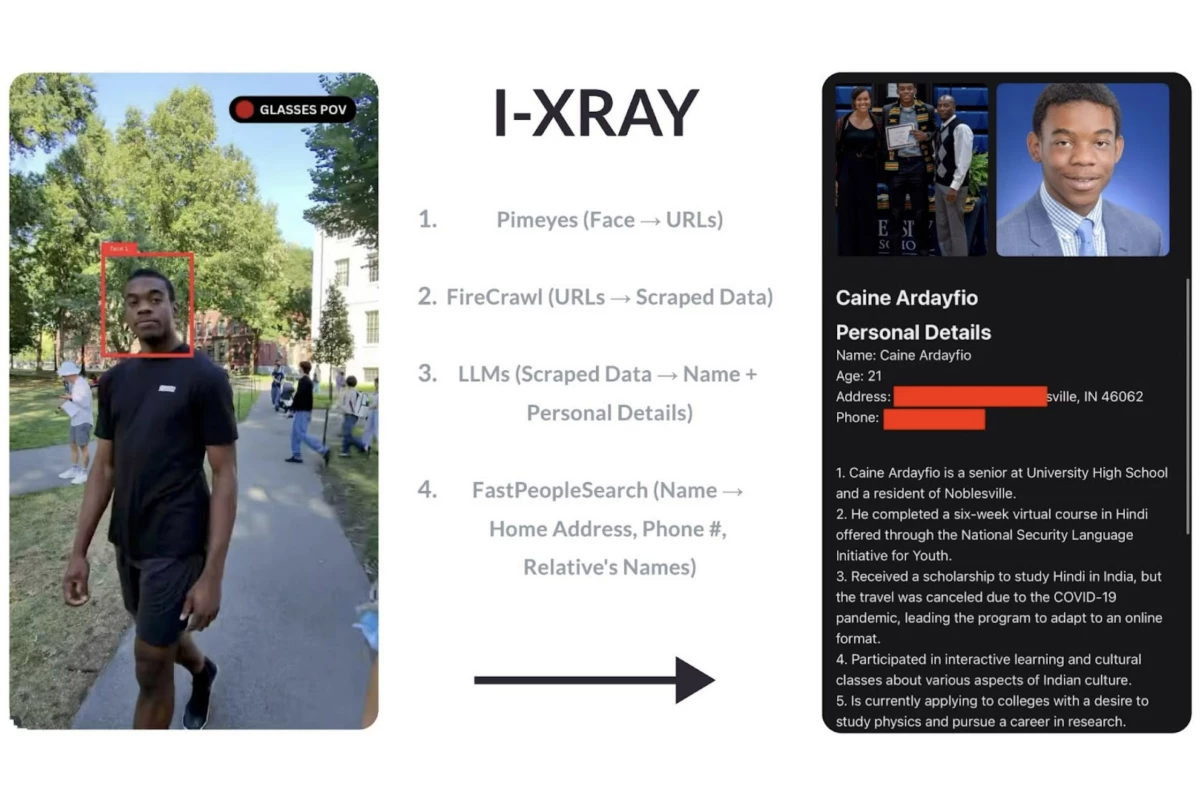In what might be described as a real-life Black Mirror episode, a Harvard student uses facial recognition with $379 Meta Ray-Ban 2 smart sunglasses - to dig up personal data on every face he sees in real time.
If you've ever cared about your privacy, now might be the time to grab the tin foil hat. I've already got mine on.
AnhPhu Nguyen, a junior at Harvard University, uses the livestreaming feature of his Meta Ray-Ban 2 smart glasses while a connected computer monitors the feed in real-time. He employs publicly available AI-powered facial recognition software to detect faces and scour the internet for more images of those individuals.
He then uses databases like voter registration and online articles to gather names, addresses, phone numbers, next of kin, and even social security numbers.
All of this data is scraped together using an LLM (Large Language Model) similar to ChatGPT which aggregates the data into a searchable profile that's fed straight back to his phone.
This entire process takes only seconds from being captured discreetly via the glasses to being displayed on his phone, giving off real life Cyberpunk 2077 vibes.
Are we ready for a world where our data is exposed at a glance? @CaineArdayfio and I offer an answer to protect yourself here:https://t.co/LhxModhDpk pic.twitter.com/Oo35TxBNtD
— AnhPhu Nguyen (@AnhPhuNguyen1) September 30, 2024
Nguyen says he's not done any of this for nefarious or malicious purposes. He's even published a small "how to" remove your information from some of the databases he uses to scrape your personal data. He wants to raise awareness of the implications this type of technology presents.
While he offers a "solution" to help protect yourself, it's really a small drop in a very large bucket that very well may never have a solution. Or maybe the solution will be wearing smart glasses of your own with infrared lights constantly blinding other facial recognition cameras?
Unfortunately, bad actors (hackers that act maliciously) have already broken into many websites and databases, including in April of this year, when information on 3 billion people, including every single social security number in existence was stolen from the background check company National Public Data and posted on the Dark Web.
This kind of thing will become quicker and easier to execute as advanced AI systems become more capable with coding – and Nguyen shows in the video just how quickly he can gain people's trust by knowing a couple of small details about them and approaching them in person.
For now, Nguyen says he's not releasing this software, which he's dubbed I-Xray.
But if a smart college kid has already "cracked the code", imagine what's already happening behind the curtains. At least I think that was the lesson Edward Snowden was trying to tell us.
Technical documentation: Google Doc




